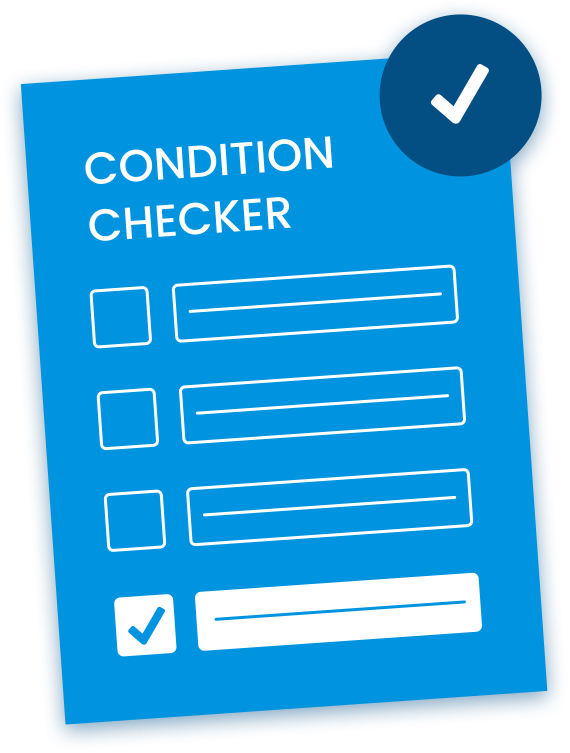Kyphosis
Find out which possible conditions you may be suffering from by trying our 2-min Guided Pain Assessment Form!





Kyphosis, sometimes known as a hunchback, is an excessive rounding of the upper spine. In older adults, kyphosis may develop due to weakness in the spinal bones causing them to compress or crack. Other types of kyphosis seen in children and teens may appear due to malformation of the spine or continual wedging of spinal bones over a period of time. While mild kyphosis may present a few issues, severe kyphosis may cause pain and disfigurement. Treatment options may vary on your age, cause, and severity of the curvature of your spine.
At NJ Spine & Orthopedic, we are committed to providing you with state-of-the-art conservative and minimally invasive laser spine surgeries to eliminate the pain and dysfunction associated with kyphosis. Our award-winning team of spinal surgeons and medical staff work in tandem to ensure our patients get the best possible outcomes.
Kyphosis is a spinal deformity that may be diagnosed through an X-ray diagnostic test by measuring the curvature of the spine, which confirms the condition if the spine curves 50 degrees or greater.
There are three types of kyphosis diagnosis, including the following:
Postural kyphosis is the most prevalent kyphosis diagnosis, which typically forms during puberty. Typically, slouching or poor posture stretches the ligaments of the spine and muscles holding the vertebrae. The stretching pulls the vertebrae out of their normal alignment, causing a rounding of the spine. This type of kyphosis is flexible and may be improved with exercise.
Scheuermann’s kyphosis is diagnosed due to the wedge shape of the vertebrae. This type of kyphosis is typically more rigid and can worsen with growth, especially in individuals with below-average weight.
Individuals with congenital kyphosis were born with this condition, meaning that the spine did not develop properly before birth. As a child grows, congenital kyphosis may worsen without surgical intervention.

Find your condition with our 2-minute Condition Checker.
A primary symptom of kyphosis is the rounding of the spine or shoulders. This rounding of the back may also affect other regions of the body, such as the back of the thighs. Tight hamstrings may also be a symptom of kyphosis. In more severe cases, individuals may also suffer from the following symptoms:
At NJ Spine & Orthopedic, we carefully assess your condition to determine the best treatment options for you. Our highly experienced medical team always begins with conservative treatment options before we recommend minimally invasive surgical procedures.

Discover which treatment options are right for you with our Treatment Finder.
Before treatment, the award-winning medical team at NJ Spine & Orthopedic will complete a medical history, physical examination, and diagnostic tests to diagnose kyphosis. X-rays are an effective way to measure and evaluate the curve of your spine.
When considering treatment, we may assess the degree of the deformity and any symptoms associated with your diagnosis. Treatment for kyphosis may include the following depending on the unique circumstances of your condition:
For mild kyphosis, we often prescribe physical therapy and exercise. You may focus on core strengthening and back extensor stretching to manage the appearance and pain of this condition.
Braces may be used to prevent worsening kyphosis or correct kyphosis in growing children. The braces are typically prescribed to be worn 23 hours a day until they are fully grown.
Pain management treatment plans may include medications to treat discomfort, such as anti-inflammatories that may alleviate back pain.
If kyphosis is causing severe pain or is interfering with your ability to participate in everyday activities, then surgery may be considered to reduce the curvature of the spine and relieve symptoms.
Treatment options vary widely depending on your condition, age, medical history, and treatment goals. Our board-certified surgeons at NJ Spine & Orthopedic have extensive experience performing minimally invasive procedures. We help you understand all the treatment options available and determine the best path for recovery.
A kyphosis diagnosis is unique to the individual and requires a personalized treatment plan for the best outcome. At NJ Spine & Orthopedic, we are committed to providing patient-centered medical care that builds treatment plans around the patient and their unique needs.
Our award-winning spine specialists are here to help. Contact us today and schedule an appointment by calling (866) 553-0612 or filling out our contact form.

Determine your eligibility with our Candidacy Verification.
CONTACT
Phone: 855.586.2615
Current Clients: 855.706.1011
NJ Spine and Orthopedic is dedicated to delivering minimally invasive laser spine surgeries to eliminate the pain, discomfort, and dysfunction of numerous conditions of the neck and back.
OVERVIEW
LOCATIONS
Copyright © 2025 NJ Spine & Orthopedic